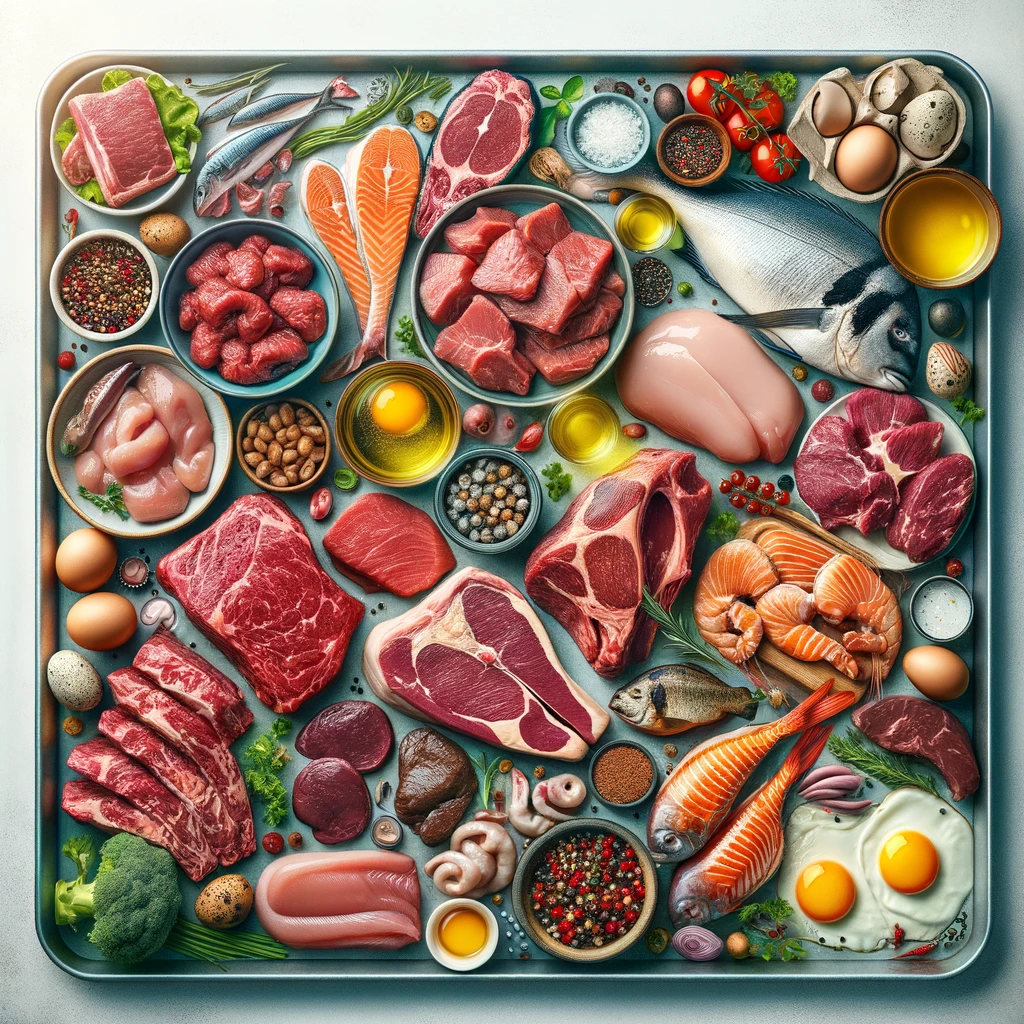
Carnivore Diet Food List
The Ultimate Carnivore Diet Food List: What to Eat on a Meat-Only Diet
Discover the essential foods for a carnivore diet. This comprehensive guide covers all the meats and animal products you can enjoy to maintain a healthy, meat-only lifestyle.
The carnivore diet, focusing solely on animal products, has gained popularity due to its simplicity and potential health benefits. This article provides a detailed list of foods you can eat on this diet, alongside practical tips and examples to help you thrive on a meat-only regime.
What is the Carnivore Diet?
The carnivore diet involves eating only animal products, excluding all plant-based foods. It’s praised for its potential to simplify eating habits, reduce inflammation, and aid in weight loss. This diet primarily consists of meat, fish, and animal byproducts like eggs and dairy.
Carnivore Diet Food List
1. Beef
- Types: Steaks, ground beef, roasts
- Examples: Ribeye steak, beef brisket, hamburger patties
- Preparation Tips: Opt for grass-fed, pasture-raised beef for higher nutrient content.
2. Poultry
- Types: Chicken, turkey, duck
- Examples: Chicken thighs, turkey bacon, duck breast
- Preparation Tips: Skin-on for extra fats; roasted or grilled to retain flavor.
3. Pork
- Types: Bacon, pork chops, ham
- Examples: Thick-cut bacon, loin pork chops, cured ham
- Preparation Tips: Look for minimally processed options.
4. Fish and Seafood
- Types: Fatty fish, shellfish
- Examples: Salmon, mackerel, shrimp, lobster
- Preparation Tips: Wild-caught fish is preferable for omega-3 fats.
5. Organ Meats
- Types: Liver, heart, kidney
- Examples: Beef liver, chicken hearts, lamb kidneys
- Preparation Tips: Organ meats are nutrient-dense; incorporate them into your diet gradually.
6. Eggs and Dairy
- Types: Whole eggs, hard cheeses, butter
- Examples: Free-range eggs, cheddar, ghee
- Preparation Tips: Full-fat dairy and eggs from pasture-raised animals are ideal.

Benefits of the Carnivore Diet
The carnivore diet, which includes only animal products, has some notable health benefits. People who follow it often experience better digestion since they avoid plant fibers that can irritate the gut. Additionally, it may reduce symptoms of autoimmune diseases by eliminating common dietary triggers. The diet’s high protein and fat content helps keep you full, which can aid in weight loss. Research, such as studies published in the “Journal of Clinical Investigation,” suggests that this diet can boost metabolism and help burn fat. However, it’s important to talk to a healthcare professional before making any major dietary changes.
Challenges and Considerations
While the carnivore diet has its benefits, it also comes with challenges. Dietary restrictions can make it tough to maintain, especially in social settings or when dining out. There’s also the risk of vitamin deficiencies, particularly vitamins C and E, and fiber, which are typically obtained from plants. Ensuring high-quality meat is crucial, as lower-quality options may contain harmful additives or lower nutritional value. To manage these issues, consider supplementing vitamins, if recommended by a healthcare provider, and choose high-quality, sustainably sourced meats to ensure you’re getting the most nutritious options available.
The carnivore diet, focusing solely on animal products, offers potential health benefits such as improved digestion, relief from autoimmune symptoms, and help with weight management. However, it also presents challenges like dietary restrictions, potential nutritional deficiencies, and the need for high-quality meat. If you’re considering this diet, it’s important to approach it with a balanced perspective and prioritize the quality of the meat you consume to maximize health benefits.
Have you tried the carnivore diet or are you thinking about giving it a go? Share your experiences or any questions you might have in the comments below. Let’s build a supportive community where we can learn from each other’s journeys and insights!





